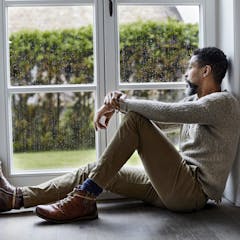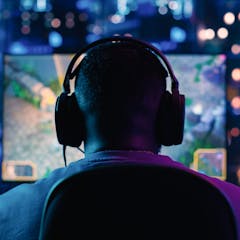
Artikel-artikel mengenai Social isolation
Menampilkan 1 - 20 dari 94 artikel

Before we draw conclusions about the implications of social isolation, we should check our expectations of how, when and why neighbouring does or does not happen.

A recent study showed encouraging people with obesity to interact with others more can keep them alive for longer.

The need to connect is fundamental. But diminishing social ties and community support are contributing to the loneliness epidemic.

COVID was a ‘gendered pandemic’, with women carrying very different burdens to men. A three-year New Zealand research project aimed to overcome the urge to forget, and provide lessons for the future.

Inflammation could be the missing puzzle piece.

Lifestyle-related dementia risks are complex, with factors like sleep, exercise, diet and social contact interacting with things like cognitive reserve, neuroplasticity and inflammation in the body.

For people who feel lonely, a trip to the supermarket could help – if only the store provided opportunities to chat at the checkout. A Dutch chain has done just that, and customers and staff love it.

For young men who struggle with mental health or lack connections in real life, chat and community features of online games can be a source of support.

Cognitive immobility, brought on by being separated from family, can lead to emotional exhaustion, anxiety, depression and post-traumatic stress disorder.

People who are lonely lead sicker and shorter lives. Just like the guidelines for food and exercise, public health guidelines for social connection can help us all live happier and healthier lives.

Public health measures in response to the COVID-19 pandemic meant that many people experienced social isolation. But the pandemic didn’t invent loneliness, and its impacts on our health are growing.

Extreme heat kills more Australians than any other natural hazard. Here’s why it’s important to keep an eye on older family and friends this summer.

Dancing requires physical, social and cognitive engagement and, as a result, it may bolster a wide network of brain regions.

Social isolation and loneliness in aging adults have been linked to numerous physical and mental health ailments. Teaching students how to listen deeply to older people can lessen those effects.

Kids with disabilities need support to gain and maintain friendships. But there are benefits for everyone when social inclusion works.

Stay connected but switch off too. Working from home requires a delicate balance to protect your wellbeing and get the job done. Here are some tips.

Socially isolated people have poorer cognition, including in memory and reaction time.

Small communities struggle to retain needed internationally educated health-care professionals. Challenges will persist until the compounding effects of social and professional isolation are addressed.

The pandemic brought about a sharp rise in mental health concerns, deep unemployment and an unprecedented amount of social isolation – a potentially deadly combination alongside rising gun sales.

While online communities may not fully address the isolation LGBTQ youth face in-person, they can serve as an important source of social support and a springboard for civic engagement.
